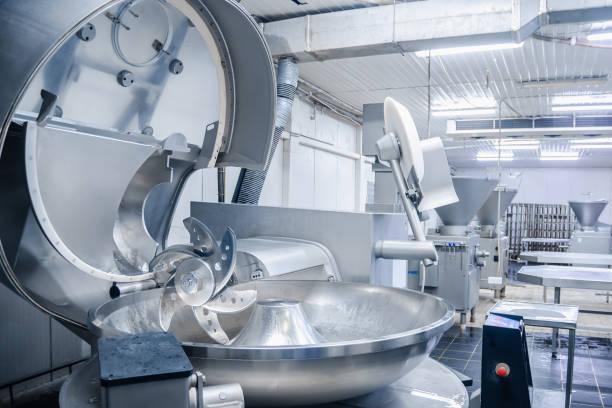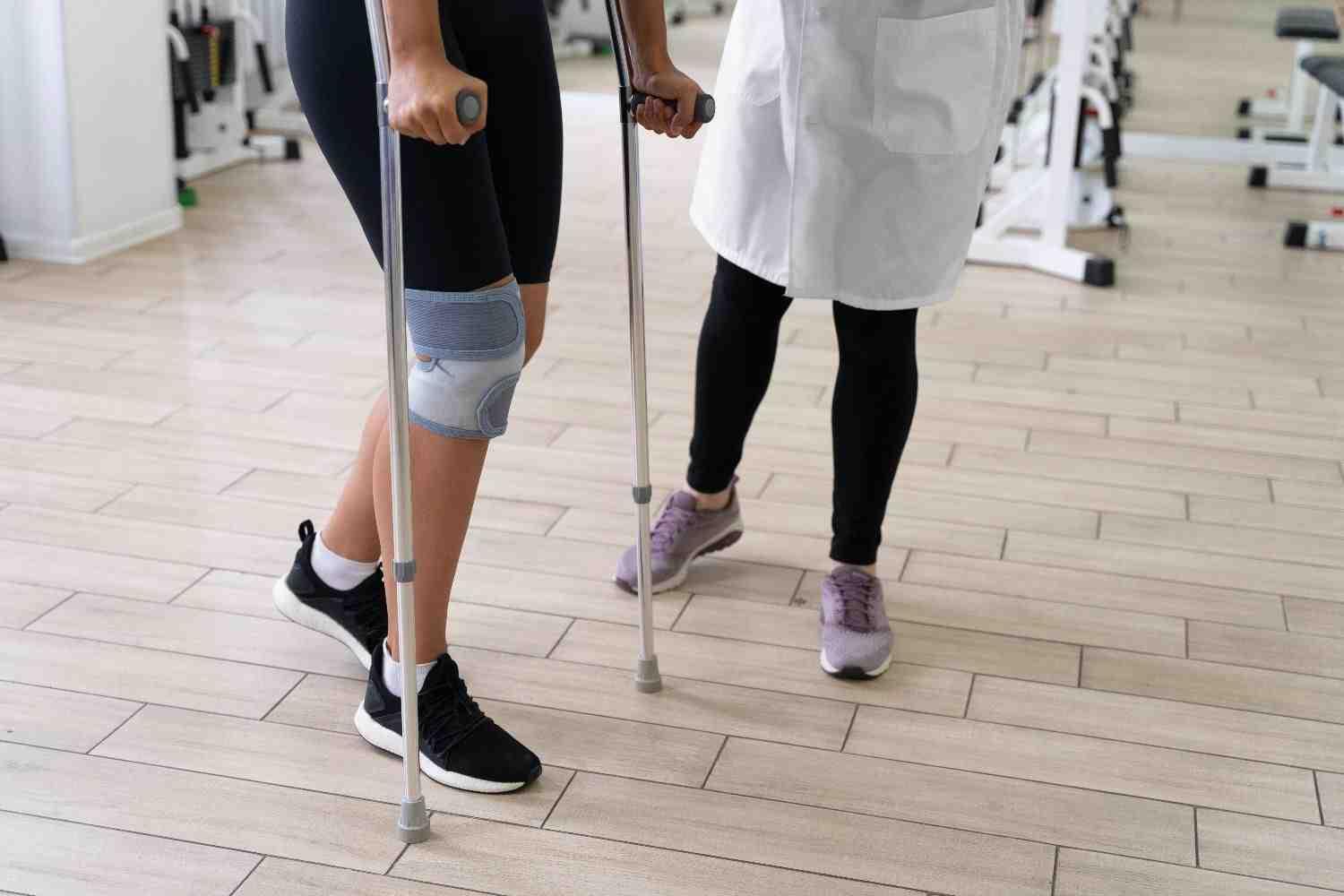How to Set Up a Hygienic Meat Processing Station – Tools, Gloves & Footwear

Setting up a butcher station that meets high hygiene standards is essential for both food safety and efficiency. Whether you're working in a commercial butchery or a meat processing plant, having the right hygienic meat processing tools UK, protective equipment, and a well-organised workspace ensures compliance with regulations while improving workflow.
In this guide, we’ll break down everything you need—from meat tools to essential cut-resistant gloves and a steel knife sharpener—to create a professional and safe butcher station setup.
Essential Tools for a Hygienic Meat Processing Station
Must-Have Meat Tools for Professional Butchers
Choosing the right meat-cutting knife and precision equipment is crucial for maintaining a smooth and hygienic meat processing workflow. Consider investing in:
-
Victorinox knives – Known for their razor-sharp edges and ergonomic grip, these knives provide unmatched control and durability, making them perfect for slicing, trimming, and portioning various cuts. They also maintain sharpness longer than standard butcher knives.
-
Dick knives – Designed for professional butchers, these knives offer a well-balanced weight distribution, reducing hand fatigue while ensuring clean, effortless cuts. Their high-carbon steel construction enhances precision while maintaining durability.
-
Steel knife sharpener – Dull blades compromise cutting efficiency and increase the risk of accidents. Regular sharpening ensures smooth performance, preventing unnecessary strain on meat fibres while maintaining hygiene by avoiding ragged edges on cuts.
-
Sanitised cutting boards – Non-porous surfaces such as polyethylene or stainless steel minimise bacterial contamination, preventing cross-contamination between raw and processed meat. Proper maintenance and regular replacement are crucial for food safety compliance.
-
Meat hooks and clamps – Keeping meat suspended off surfaces reduces bacterial exposure and prevents accidental contamination. These tools also help streamline workflow by securing large carcasses for precise butchering.
Organising Meat Tools for Hygiene & Efficiency
-
Dedicated zones – Divide your station into separate areas for cutting, packaging, and disposal. Keeping these zones distinct prevents cross-contamination while improving efficiency.
-
Sanitising stations – A designated cleaning space ensures knives, gloves, and surfaces are regularly disinfected between tasks, maintaining high food safety standards.
-
Proper knife storage – Keep knives in holders or magnetic strips rather than loose in drawers. This minimises the risk of accidental injuries and ensures blades stay sharp and free from contamination.
Choosing the Right Protective Gloves for Butchering
Types of Gloves for Safe Meat Processing
Using the correct cut-resistant gloves, steel gloves, or chain gloves prevents injuries and improves handling efficiency. Select gloves based on specific butchering tasks:
-
Cut resistant gloves – Made from high-performance fiber blends such as Kevlar or Dyneema, these gloves protect against accidental cuts while maintaining full dexterity for detailed trimming work. Their breathable design also prevents excess sweating, ensuring comfort.
-
Steel gloves – Constructed with interwoven steel mesh, these gloves provide maximum resistance against sharp blades and saws, preventing deep cuts during high-impact butchering. They are particularly useful for meat professionals handling large carcasses and bones.
-
Chain gloves – Preferred for heavy-duty meat processing, these gloves feature metal chain links that protect against deep lacerations while maintaining flexibility. They are commonly used in slaughterhouses where butchers need reinforced protection for high-volume work.
Maintaining Hygiene with Gloves
-
Regular cleaning – Always wash gloves with antibacterial solutions at the end of each shift. Bacteria can multiply rapidly on gloves, so frequent sanitisation is essential.
-
Separate glove sets – Using dedicated gloves for raw meat handling, processing, and packaging prevents contamination. Assign different colours or labels to distinguish each set for easy identification.
-
Secure fitting – Loose gloves can lead to poor grip control, increasing the risk of accidental slips. Choose gloves that provide a snug, comfortable fit to enhance precision when handling butchers knives and meat tools.
Selecting Proper Footwear for Butcher Station Setup
Why Footwear Matters in Meat Processing Stations
Wearing durable, food-safe footwear minimises risks associated with slippery floors and falling objects. Ideal choices include:
-
Slip-resistant boots – Processing stations often have wet, greasy floors, making slip-resistant soles crucial for workplace safety. Look for deep-groove treading that enhances traction and prevents accidents.
-
Steel-toe boots – Heavy-duty butchering involves working with sharp knives and large meat carcasses. Steel-toe boots provide reinforcement to protect against falling objects and accidental impact injuries.
-
Waterproof footwear – Butcher stations involve frequent exposure to water, blood, and cleaning chemicals. Waterproof boots prevent moisture absorption, keeping feet dry and reducing the risk of bacterial exposure.
Best Practices for Footwear Hygiene
-
Disinfection routine – Footwear can carry bacteria from raw meat residues and floor contaminants. Disinfect boots at the end of each shift using food-safe antimicrobial sprays or dedicated boot-washing stations.
-
Proper storage – Keeping boots in designated areas ensures they remain free of contaminants while maintaining cleanliness standards. Avoid storing footwear near cutting zones to prevent cross-contamination.
-
Wear boot covers – Disposable covers are useful in high-risk areas such as slaughterhouses, adding an extra barrier against bacteria while maintaining sanitation levels.
Maintaining a Hygienic Work Environment
Daily Cleaning & Sanitation Practices
A professional butcher station setup should adhere to strict cleaning protocols to keep equipment sanitary and safe. Routine tasks include:
-
Knife sanitation – Every meat-cutting knife must be sterilized after each use. Using a designated knife-cleaning solution prevents bacteria from lingering on blades.
-
Workstation disinfection – Wipe down cutting boards, countertops, and meat tools with food-safe disinfectants at regular intervals throughout the day.
-
Regular equipment checks – Inspect knives, sharpening tools, gloves, and footwear for signs of wear. Damaged tools or PPE can pose serious safety hazards, so timely replacements are critical.
Compliance with Food Safety Standards
-
Follow UK food hygiene regulations – Adhering to legal food handling standards prevents contamination risks and ensures compliance with industry regulations.
-
Use food-grade disinfectants – Harsh cleaning chemicals can leave toxic residues. Always select approved food-safe cleaning solutions to protect meat quality.
-
Provide staff training – Educate employees on best practices for maintaining a clean and hygienic meat processing station. Regular hygiene audits help reinforce compliance.
Creating a Safe & Efficient Meat Processing Station
Setting up a hygienic butcher station requires more than just high-quality meat tools and Victorinox knives. The combination of protective gloves, a steel knife sharpener, and proper sanitation ensures professionals can work safely and efficiently while maintaining strict food hygiene standards.
By investing in the right cut-resistant gloves, chain gloves, and steel gloves, butchers minimise the risk of injuries while handling sharp equipment. Similarly, choosing appropriate footwear and regularly sanitising workstations keeps operations running smoothly.
SUMMARY
For anyone involved in meat processing station setup, following these guidelines guarantees a safer work environment while upholding hygiene and efficiency standards. A well-equipped and properly maintained station ensures professional-grade results, making it an essential part of every butcher's workflow.






